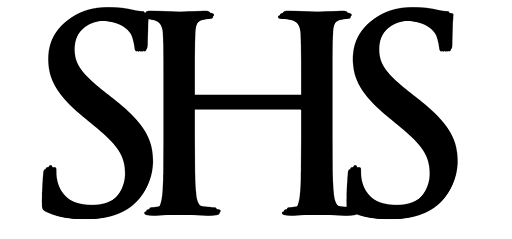It was represented by ‘an irreverent journal’ (Encyclopedia Britannica), edited by the feminist writer Rosario Ferré, it was entitled Zona. Carga y Descarga printed between 1972-1975 in Puerto Rico; it consisted of Numbers 1-9 in issues.
The influential avant garde magazine Zona was produced by three women: two feminist writers Rosario Ferré (1938-2016) the principal editor, Olga Nolla (1938-2001) and a Puerto-Rico-based Cuban woman artistic designer and abstract painter Zilia Sánchez (b.1926). This was a rare phenomenon in the world of Latin American magazines. As time has passed its historical significance has grown, revealing it to be one of the most important and innovative journals of the Spanish speaking world of the period. Zona has been described by the Encyclopedia Britannica as ‘an irreverent journal that became quite popular. ’ All who have written about the magazine, as Benigno Trigo observes, agree that it represented ‘an important contribution to the history of Puerto Rican literature, and particularly to a moment of crisis and rupture in that history when a young generation of writers violently broke with an earlier generation by challenging its moral and aesthetic values. To some degree, all these critics describe Zona as an unusual and sudden moment of openness in the literary history of Puerto Rico when new modes of reading and writing were tried.’ Out of of this emerged what Juan Gelpí calls “the three fundamental texts of Puerto Rican narrative during the seventies: Papeles de Pandora by Rosario Ferré, La guaracha del Macho Camacho by Luis Rafael Sánchez and La novelabingo by Manuel Ramos Otero” (quoted by Trigo)
The journal was not only open to new Puerto Rican writers and artists but also attracted established young Latin American figures and renowned writers such as José Lezama Lima and Ernesto Cardenal. Politically, it was in favour of Puerto Rican independence. In its design the Cuban emigré artist Zilia Sánchez broke traditional barriers using the colourful photomontage inspired by the American underground magazines. ‘Sánchez’s graphic design, Rafael Diazcasas has observed – enhanced the journal’s content, with the use of photomontage, innovative typesetting and layered layouts of image and text, inscribing a fractured topology into the publication’. The magazine is also regarded as having opened the way for queer literature. “Zona dealt, consistently, – Sergio Gutierrez Nerón has argued – with the status of women, the critique of hetero- normativity and the question of overt homosexuality, placing at its center female and queer authors, some of whom, with time, became key players in the field—Ferré herself, Nemir Matos, Manuel Ramos Otero and Luis Rafael Sánchez, just to mention a few”. The journal represented a “reac- commodation, a shift, or better still an inversion even of the function of minor literatures in the seventies, of which the so-called Boom was perhaps the most spectacular example.” (Trigo 2009, p.485).
Ferré, born in a rich Puerto Rican family, had studied in the United States. As Aníbal González observes, “Rosario Ferré spent much of her adult life as a rebel of sorts: first rebelling from her family and her upbringing, and later from the expectations of her Puerto Rican compatriots of all political stripes, whom she confounded by often doing (or writing) the opposite of what they expected of her” p.167. She is regarded as an important reference of Puerto Rican feminism and literature. She wrote novels, short stories, poems and feminist theory. In 2015, the year before her death, she published a Memoir.
As González remarks: “Photos in Memoir show Rosario and Olga in jeans, seated on the floor of a bohemian apartment and smoking while working on the mock-ups of the journal (Zona), which was sold on the streets and in bookstores near the University of Puerto Rico for seventy-five cents. Zona’s success (and the scandal raised by its publication of groundbreaking gay fiction by Manuel Ramos Otero) gave Rosario entry into the Puerto Rican intelligentsia, which, for understandable historical reasons, has been and still is politically radical and favors Puerto Rican independence from the US” Aníbal González (2016), p. 168. The defiant attitude of Ferré and Zona is encapsulated in the programme of its first number: ‘Queremos decir, duro y fuerte para que nos oigan todos, que la hora es nuestra y vamos a tomarla creando’.
Issue number 1 has manuscript annotations that are connected with the editors of the Argentinian magazine Crisis, published by Federico Vogelius during the same years.
Provenance: Federico Vogelius collection.
Literature
Diazcasas, Rafael, ‘Zilia Sánchez: A Minimalist Mulata – a Caribbean Island.’ , Art On Cuba Vol I No 1 December 2013 – February 2014.
Gelpí, Juan Literatura y paternalismo en Puerto Rico Editorial de la Universidad de Puerto Rico, 1993
Gonzalez, Anibal. (2016). “R” is for Rebel: Rosario Ferré (1938–2016). Review: Literature and Arts of the Americas. 49. 167-171. 10.1080/08905762.2016.1256655.
Gutierrez Nerón, Sergio, ‘Cruel Dispositions: Queer Literature, the Contemporary Puerto Rican Literary Field and Luis Negrón’s Mundo Cruel (2010), in I. M. Sánchez Prado (ed.), Pierre Bourdieu in Hispanic Literature and Culture https://doi.org/10.1007/978-3-319-71809-5_7 , p. 165
Jiménez Benítez, Adolfo. Historia de las Revistas Literarias Puertorriqueñas. San Juan, Puerto Rico: Ediciones Zoé, 1998.
Ramos, Lucila, ‘Zona de Carga y Descarga: debate, ruptura y creacion literaria’ “Zona de Carga y Descarga: debate, ruptura y creacion literaria.” Revista de Estudios Hispanicos, vol. 35, no. 1-2, 2008, p. 111.



